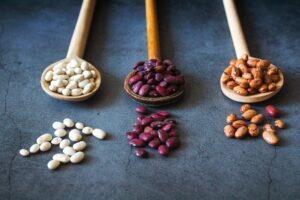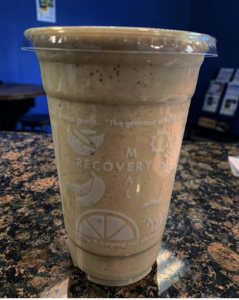Celebrate National Nutrition Month in March!
Did you know that March is National Nutrition Month? At Elite, we are all about results, and nutrition is an essential component of getting the results you desire. Protein is always a popular topic of discussion when it comes to fitness, but do you know how much protein you actually need on a daily basis? Read below for more information on how to calculate your protein needs from our resident nutrition expert, Lauren Harding, who holds a Master’s Degree of Education in Nutrition Education and a Bachelor’s Degree of Science in Nutrition Dietetics.
Basic daily protein needs can be calculated using this equation*:
*based on recommended dietary allowance (RDA), RDA is the average daily intake sufficient to meet requirements of nearly all healthy people*
(0.8g/kg/day) x (your weight in kg) = your protein needs in g per day. To calculate your weight in kg, divide your weight in pounds by 2.2kg/lb.

Now that you know how much protein you need daily, let’s talk about why protein is important. Protein is an important macronutrient for many reasons, including building muscle mass, assisting in making antibodies, and helping with processes inside the body to fuel energy. Protein from our diets is converted to amino acids, and if a dietary protein can convert to amino acids efficiently, this is referred to as high protein quality.

Animal sources of protein are considered complete proteins because they contain all essential amino acids, but there are plant sources such as buckwheat, quinoa, soy, and chia seeds contain all essential amino acids as well. Plant protein sources sometimes lack a few amino acids, but are much more easily digested and therefore are less work for our bodies to process. It’s important to incorporate a variety of protein sources into your diet!
Specific sources of protein include meat, soy, nuts, tofu, chia seeds, eggs, quinoa, beans, and of course – protein shakes at Elite! At Elite, we offer both soy and whey protein powders for our delicious shakes – and our protein powders contain no added extra sugars! For more information on your nutrition needs, contact Lauren at laurenhardingelitefit@gmail.

